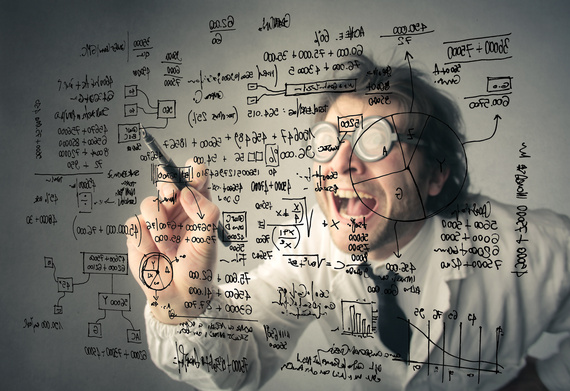The short answer is "It can't hurt." The physical sciences, such as Physics, Astronomy, Chemistry, all require a great deal of math to master. That is often why these disciplines are referred to as the "hard sciences."
When it comes to high school sciences, however, the level of mathematics knowledge required is relatively minimal. One could successfully complete AP Chemistry with only seventh grade algebra skills and an understanding of base ten logarithms. High school and AP Physics require algebra, plus a facility with the trigonometric functions sine, cosine and tangent. It is only AP Physics C that requires Calculus (AP Physics 1 and AP Physics 2, both of which only require Algebra and the trigonometric functions sine, cosine and tangent).
However, it has been my experience that a student who is not at or above grade level in mathematics will struggle in these courses, not because she hasn't been exposed to the prerequisite skills, but because there is either some aspect of number sense that has not yet been fully developed, or the perpetuated belief that they aren't good at math. If at any point in his/her elementary years a child is falling behind in mathematics, get her the help she needs immediately. Chalking it up to "not being good at math" is the greatest disservice you can do to your child's education, and will stunt the budding scientist within her.
There are some fields of science in which math is not paramount, such as many of the biological sciences. Whereas I firmly believe that mathematics facility can only serve a biological scientist well, high school Biology will place few to minimal demands on a student's math skills. In college and beyond, where research is a necessary component to biology, mathematics competency will prove itself not only valuable buy necessary many times over.
With that said, there are exceptionally successful biologists who claim that good math skills are not a requirement, offering themselves as living breathing examples. Two of whom come to mind are E.O. Wilson and Temple Grandin.
"Many of the most successful scientists in the world today are mathematically no more than semiliterate," claimed E.O. Wilson in an article he wrote for the Wall Street Journal. E.O. Wilson, "Great Scientist ≠ Good at Math," Wall Street Journal, April 5, 2013. "Real progress comes in the field writing notes, at the office amid a litter of doodled paper, in the hallway struggling to explain something to a friend, or eating lunch alone. Eureka moments require hard work. And focus," not necessarily math.
E.O. Wilson explains that is far easier for a scientist to collaborate with a mathematician than for a mathematician to find "scientists able to make use of their equations."
To Thomas Edison has been attributed the line "I can hire a mathematician but a mathematician cannot hire me."
"If your level of mathematical competence is low," explains Wilson, "plan to raise it, but meanwhile, know that you can do outstanding scientific work with what you have. Think twice, though, about specializing in fields that require a close alternation of experiment and quantitative analysis. These include most of physics and chemistry, as well as a few specialties in molecular biology."
"For every scientist," Wilson continues, "there exists a discipline for which his or her level of mathematical competence is enough to achieve excellence."
Temple Grandin, the great animal biologist, professor of animal science at Colorado State University, and outspoken hero for autism, attributes her college and graduate degrees to the absence of an Algebra requirement.
"Tutoring me in algebra was useless," writes Grandin in Thinking in Pictures, "because there was nothing for me to visualize. If I have no picture, I have no thought."
Grandin barrelled through her required finite math courses with the help of tutors and devoted hard work in order to achieve her science goals.
In short, if math isn't your thing, then make it your thing. After all, any skill can be mastered through diligence and hard work. Then, whether or not math is an essential component of your scientific career, it will not be your stumbling block.

